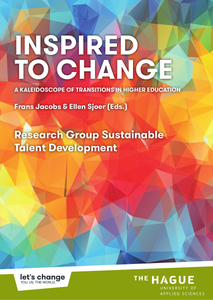Dit verkennend onderzoek, dat in opdracht van de provincie Utrecht werd uitgevoerd, richt zich op de pilot-residentie Ways to listen to a river van componist Nahuel Cano. Deze residentie werd geproduceerd door Residenties in Utrecht in opdracht van de Provincie Utrecht. Het doel van het verkennend onderzoek was het bevorderen van kennisontwikkeling rondom de waarde en impact van de pilot-residentie. Daarbij werden tijdens het onderzoek de principes van Arts Based Research (ABR) als theoretische lens ingezet. De deelnemers (beleidsmedewerkers en kunstenaars) van het onderzoek geven aan de principes van ABR in hun eigen werkwijze en/of in voor hen bekende artistieke praktijken te herkennen. In de beleidsontwikkeling rondom dergelijke artistieke trajecten lijkt een meer procesmatige, ‘bottom-up' benadering van belang. Daarbij kan het mogelijk helpen om per artistiek traject niet ouput-gestuurde, maar eerder proces-gestuurde afspraken te formuleren. Deze procesafspraken dienen vooraf en tijdens een traject, onder andere met behulp van aandachtspunten van ABR, gezamenlijk met de betrokkenen (bijvoorbeeld de kunstenaar(s), beleidsmedewerker(s), producent(en) en deelnemers) van een artistiek traject te worden geformuleerd.
DOCUMENT

Dit verkennend onderzoek, dat in opdracht van de provincie Utrecht werd uitgevoerd, richt zich op de pilot-residentie Ways to listen to a river van componist Nahuel Cano. Deze residentie werd geproduceerd door Residenties in Utrecht in opdracht van de Provincie Utrecht. Het doel van het verkennend onderzoek was het bevorderen van kennisontwikkeling rondom de waarde en impact van de pilot-residentie. Daarbij werden tijdens het onderzoek de principes van Arts Based Research (ABR) als theoretische lens ingezet. De deelnemers (beleidsmedewerkers en kunstenaars) van het onderzoek geven aan de principes van ABR in hun eigen werkwijze en/of in voor hen bekende artistieke praktijken te herkennen. In de beleidsontwikkeling rondom dergelijke artistieke trajecten lijkt een meer procesmatige, ‘bottom-up' benadering van belang. Daarbij kan het mogelijk helpen om per artistiek traject niet ouput-gestuurde, maar eerder proces-gestuurde afspraken te formuleren. Deze procesafspraken dienen vooraf en tijdens een traject, onder andere met behulp van aandachtspunten van ABR, gezamenlijk met de betrokkenen (bijvoorbeeld de kunstenaar(s), beleidsmedewerker(s), producent(en) en deelnemers) van een artistiek traject te worden geformuleerd.
DOCUMENT

We need mental and physical reference points. We need physical reference points such as signposts to show us which way to go, for example to the airport or the hospital, and we need reference points to show us where we are. Why? If you don’t know where you are, it’s quite a difficult job to find your way, thus landmarks and “lieux de memoire” play an important role in our lives.
LINK
Inclusief onderwijs staat hoog op de agenda van De Haagse Hogeschool. Sinds januari 2021 is Naomi van Stapele lector Inclusive Education bij het kenniscentrum Global & Inclusive Learning. In deze intreerede van september 2022 wordt o.a. ingegaan op onzekerheid, de drie leidende beginselen van inclusief onderwijs, de ethische politiek van inclusiviteit, etc.
DOCUMENT

This text is based on the publication: Wolff, R. & M. de Jong (2018), Doceren voor een inclusieve klas. Een literatuurstudie ter voorbereiding op docenttrainingen in het hoger (beroeps)onderwijs. (Teaching for an inclusive class. A literature study as preparatory input for teacher trainings in higher (vocational) education) Diemen/Rotterdam: Inholland/Risbo
DOCUMENT

In human-controlled environments, areas of wild plants are 'translated' into cultivated landscapes to accommodate social, cultural and economic needs. This article explores indoor, agricultural and (sub)urban landscape in the Netherlands, focusing on the use of plants both indoors and outdoors, and reveals anthropocentric, instrumental and unsustainable practices. The article also presents suggestions for alternative, more ethical and sustainable ways of relating to plants in the Netherlands and beyond. https://www.ecologicalcitizen.net/article.php?t=wilderness-plastic-plants-how-might-get-back-wildness https://www.linkedin.com/in/helenkopnina/
MULTIFILE

This research paper looks at a selection of science-fiction films and its connection with the progression of the use of television, telephone and print media. It also analyzes statistical data obtained from a questionnaire conducted by the research group regarding the use of communication media.
DOCUMENT
![Does Science-Fiction predict [or change] the future?](https://publinova-harvester-content-prod.s3.amazonaws.com/thumbnails/files/previews/pdf/20250506145555255024.adbf7edd-9619-4d0e-9a17-e0e7096adc7f-thumbnail-400x300.png)
This book consists of thirteen chapters with elaborations on several perspectives of the Universities kaleidoscope. The aim of our book is not meant as a purely scientific endeavour, but as a contribution to the future development of universities. The style is popular science, primarily targeted at our lecturers as one of the most important social capitals we have. As the book is addressed to them, all chapters discuss their role, directly or indirectly. The focus is always on the ability to offer students the best possible learning environment. This requires first and foremost a dialogue on the professional diversity of lecturers. Innovative behaviour appears to be crucial for all of them. In addition to these abilities of lecturers, the design of the curriculum is essential for all parties involved. A curriculum largely determines the themes and contents addressed, how work-related, engaging and stimulating learning activities are developed and how lecturers design these on the micro level based on their expertise. Frans Jacobs & Ellen Sjoer (Editors). (See also seperate chapters).
DOCUMENT

The first part of this paper provides a series of conceptual critiques to illustrate how the recent move to inaugurate a “post-nature” world works to vindicate anthropocentric perspectives and a techno-managerial approach to the environmental crisis. We contend with this premise and suggest that troubling nature has profound implications for education. In the second part, we provide case studies from nature-based programs in The Netherlands and Canada to demonstrate how anthropocentric thinking can be reinscribed even as we work towards “sustainability”. Despite the tenacity of human hubris and the advent of the Anthropocene, we suggest these troubled times are also rich with emerging “post-anthropocentric” perspectives and practices. As such we offer “rewilding” as a means to think about education that moves beyond the romantic vestiges of “Nature” without lapsing into delusions of human exceptionalism. http://dx.doi.org/10.13135/2384-8677/2334 https://www.linkedin.com/in/helenkopnina/
MULTIFILE
